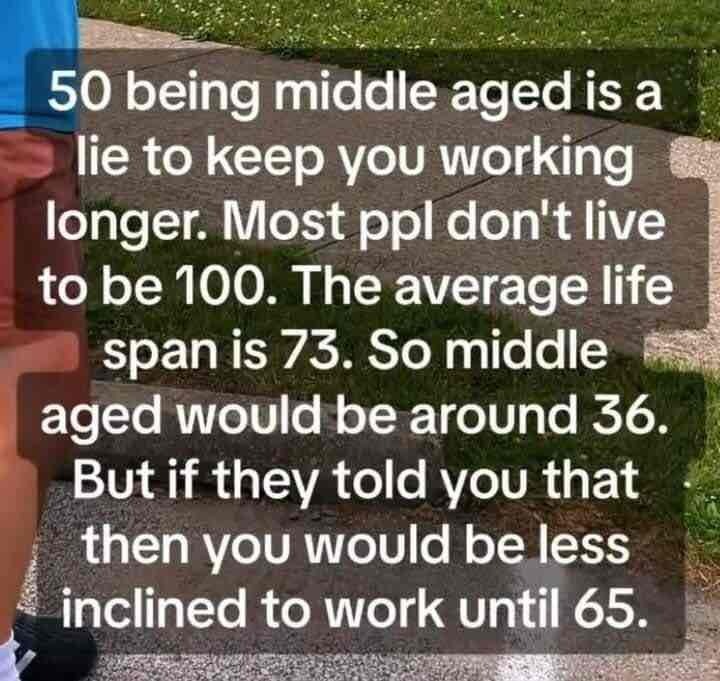this post was submitted on 06 Jan 2024
774 points (98.3% liked)
196
16803 readers
2746 users here now
Be sure to follow the rule before you head out.
Rule: You must post before you leave.
founded 2 years ago
MODERATORS
you are viewing a single comment's thread
view the rest of the comments
view the rest of the comments

Overall average lifespan is a misleading statistic because it includes people who die young (infant mortality for example really brings it down). As you get older, the average lifespan for someone of your specific age increases.
does it... keep increasing?
It does, because we're talking about the total lifespan instead of remaining lifespan. A person who is 120 may have a 10% chance of living another year; but a 50 year old probably has less than a 1% chance living 71 more years. Of course the 50 year old probably has more than a 99% chance of living another year. So the older you are, the older your expected total lifespan is, even if your expected remaining lifetime is shorter.
You're absolutely right, stats are a very misunderstood subject. It's difficult to contextualize stats like this when the population is so large. My measurement for when I got old was when I started to meet old friends and at some point in the conversation we begin talking about other friends who we both knew who've passed away since the last time we've talked.
A person who is 120 has a less than 1 percent chance of living to the next year. 120 is the maximum lifespan of humans so far. Only one person in recorded history has lived past 120, and she made it to 122.
Infinitely. The more you age, the older you get.
At some point it increases by 1 for each year you live!
They exclude infant morality from average lifespan. And there's limited returns. At about 60-65 a large die off starts in an age cohort. Half of them will not make it 75, and three quarters will not make it to 85. Very few make it to 100.